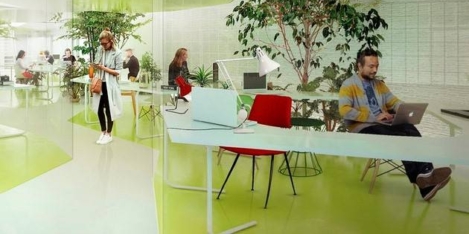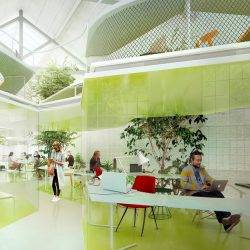February 15, 2018
Neurodiversity not on the agenda for 9 out of 10 UK organisations
 Just 1 in 10 organisations say consideration of neurodiversity is included in their people management practices, despite around 10 percent of the UK population being neurodivergent in some way, according to a poll of HR professionals from the CIPD. Neurodiversity refers to the natural range of differences in human brain function. Amongst employers, it’s used to describe alternative thinking styles including dyslexia, autism, ADHD and dyspraxia as they relate to diversity and inclusion. These can have unique strengths, ranging from data-driven thinking to sustained focus over long periods, an ability to spot patterns and trends, and the capacity to process information at extraordinary speeds. It is estimated that at least 10 percent of the UK population is neurodivergent.
Just 1 in 10 organisations say consideration of neurodiversity is included in their people management practices, despite around 10 percent of the UK population being neurodivergent in some way, according to a poll of HR professionals from the CIPD. Neurodiversity refers to the natural range of differences in human brain function. Amongst employers, it’s used to describe alternative thinking styles including dyslexia, autism, ADHD and dyspraxia as they relate to diversity and inclusion. These can have unique strengths, ranging from data-driven thinking to sustained focus over long periods, an ability to spot patterns and trends, and the capacity to process information at extraordinary speeds. It is estimated that at least 10 percent of the UK population is neurodivergent.




















 Demand for office space in Scotland’s three largest cities pushed overall take-up beyond 2m sq ft last year, aided by a solid final quarter of occupational deals in Aberdeen and Glasgow, and an all-time record year for Edinburgh. Scotland’s offices market in 2017 reach ed2.4 million sq ft, 14 percent above the 10 year average, according to the latest Scottish Office Spotlight from Savills. In Edinburgh (city centre and wider market) office take-up amounted to a record 1.1 million sq ft boosted by the ongoing growth of tech in the city. According to data from Stack Overflow, the Scottish capital saw a 19 percent increase in data scientists employed in the city centre over the course of 2017. Activity places further pressure on supply with only 220,000 sq ft of Grade A now available which Savills suggests will push top rents to £34 per sq ft in 2018. Keith Dobson, director in the business space agency team at Savills in Edinburgh, says: “The soon to be completed 40,000 sq ft office scheme at 2 Semple Street will ease pent up demand come Q2 2018, whilst The Mint Building and Capital Square will complete in 2019 and 2020 respectively.”
Demand for office space in Scotland’s three largest cities pushed overall take-up beyond 2m sq ft last year, aided by a solid final quarter of occupational deals in Aberdeen and Glasgow, and an all-time record year for Edinburgh. Scotland’s offices market in 2017 reach ed2.4 million sq ft, 14 percent above the 10 year average, according to the latest Scottish Office Spotlight from Savills. In Edinburgh (city centre and wider market) office take-up amounted to a record 1.1 million sq ft boosted by the ongoing growth of tech in the city. According to data from Stack Overflow, the Scottish capital saw a 19 percent increase in data scientists employed in the city centre over the course of 2017. Activity places further pressure on supply with only 220,000 sq ft of Grade A now available which Savills suggests will push top rents to £34 per sq ft in 2018. Keith Dobson, director in the business space agency team at Savills in Edinburgh, says: “The soon to be completed 40,000 sq ft office scheme at 2 Semple Street will ease pent up demand come Q2 2018, whilst The Mint Building and Capital Square will complete in 2019 and 2020 respectively.”
 Less than a quarter (23 percent) of employees feel completely informed about the values of the organisation they work for and just 19 percent of employees feel completely informed about their employer’s corporate mission claims a new survey by Reward Gateway. These statistics are even more problematic when you consider that 83 percent of employers say it’s critical to the success of their business that employees understand their mission. Recognition is one of the key drivers needed to ingrain employees with a company’s values and corporate mission, however, 40 percent of employees don’t agree that their employer recognises them when they demonstrate the values their company cares about. Furthermore, the study has found a break-down of communication and trust between employees and their employers. 81 percent of senior decision makers say that their organisation is transparent with employees about how they plan to achieve the company mission. However, only 22 percent of employees say they strongly agree that they trust their employer to communicate information openly and honestly.
Less than a quarter (23 percent) of employees feel completely informed about the values of the organisation they work for and just 19 percent of employees feel completely informed about their employer’s corporate mission claims a new survey by Reward Gateway. These statistics are even more problematic when you consider that 83 percent of employers say it’s critical to the success of their business that employees understand their mission. Recognition is one of the key drivers needed to ingrain employees with a company’s values and corporate mission, however, 40 percent of employees don’t agree that their employer recognises them when they demonstrate the values their company cares about. Furthermore, the study has found a break-down of communication and trust between employees and their employers. 81 percent of senior decision makers say that their organisation is transparent with employees about how they plan to achieve the company mission. However, only 22 percent of employees say they strongly agree that they trust their employer to communicate information openly and honestly.
 Half of employers believe that Brexit will worsen the UK skills gap and nearly a quarter (23 percent) believe that Britain is not prepared to compete on the global stage, which will become even more important following the UK’s exit from the European Union in 2019. These are the findings of a research paper entitled “Solving the UK Skills Shortage” from Rober Walters, totaljobs and Jobsite which claims that almost two thirds of employers (65 percent) believe that they will be negatively impacted by skills shortages in 2018, with this shortage predicted to be most acute at junior and mid management level according to over half (52 percent) of employers. According to the research, employers may have to look to different industries to find the transferable skills that are essential to grow. This means that there will be more opportunities for skilled candidates to use their knowledge and experience in different sectors, providing them with new challenges and opportunities in industries that they may not have considered before.
Half of employers believe that Brexit will worsen the UK skills gap and nearly a quarter (23 percent) believe that Britain is not prepared to compete on the global stage, which will become even more important following the UK’s exit from the European Union in 2019. These are the findings of a research paper entitled “Solving the UK Skills Shortage” from Rober Walters, totaljobs and Jobsite which claims that almost two thirds of employers (65 percent) believe that they will be negatively impacted by skills shortages in 2018, with this shortage predicted to be most acute at junior and mid management level according to over half (52 percent) of employers. According to the research, employers may have to look to different industries to find the transferable skills that are essential to grow. This means that there will be more opportunities for skilled candidates to use their knowledge and experience in different sectors, providing them with new challenges and opportunities in industries that they may not have considered before.











